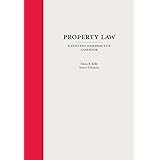The decision to invest in the Polish housing market or even return to Poland today is fraught with significant economic challenges and appears to be a detrimental move for many, particularly those with an entrepreneurial mindset or a family. As highlighted in the accompanying video, Poland’s current economic, tax, and social security systems present a complex web of hurdles that far outweigh potential benefits, making it an unfavorable environment for financial growth and long-term stability.
For individuals pondering a return to their homeland, or contemplating investment in Polish real estate, a thorough understanding of the intricate financial landscape is paramount. The speaker, a qualified financier with two decades of experience, presents a stark assessment, painting a picture of an economy facing systemic issues that undermine individual prosperity.
The Polish Tax and Social Security Burden: A Deep Dive into ZUS
One of the most pressing concerns for anyone considering establishing a business or even basic employment in Poland is the exorbitant cost of social security contributions (ZUS) and taxes. The video explicitly mentions a scenario where a Polish family, comprising two working adults, could face monthly ZUS payments totaling 4,000 PLN (approximately 1,000 EUR), irrespective of their actual income.
This fixed and substantial ZUS obligation is particularly punitive for small business owners and freelancers. Unlike systems in countries like the UK, where social contributions are often scaled to income and lower thresholds apply, Poland’s model can effectively erode profit margins and discourage entrepreneurship. Many aspiring business owners find themselves struggling to cover these mandatory payments even before generating substantial revenue, transforming what should be a safety net into a crippling financial burden.
Furthermore, the cumulative effect of high ZUS, value-added tax (VAT), and income tax creates a disproportionate tax wedge compared to other European nations. The speaker suggests that taxes in Poland can be three to ten times higher than in the UK for certain activities. This dramatically reduces disposable income and the ability to save or reinvest, hindering economic mobility and wealth accumulation for the average Polish family.
An Unfavorable Housing Market: High Prices and Usurious Mortgages
The Polish housing market currently presents a paradoxical challenge: high prices combined with unfavorable financing conditions. Despite the economic warnings, property values remain inflated, a situation exacerbated by specific policies and a lack of market-cooling mechanisms.
Exorbitant Real Estate Valuations and Mortgage Rates
The video points out that Polish real estate prices are artificially inflated, a consequence of unchecked demand and the absence of specific taxes seen in other robust markets. For instance, in the UK, a Stamp Duty Land Tax (SDLT) is levied on property purchases, with non-residents often paying an additional surcharge of up to 10-15% for investments. Such progressive taxation helps regulate the market, discourages speculative buying, and provides revenue for local municipalities. Poland lacks a comparable system, allowing foreign capital and non-resident investors to acquire properties without equivalent fiscal contributions, driving up prices beyond the reach of local residents.
Compounding this issue are the excessively high mortgage rates, often reaching 8% annual percentage rate (APR) in Poland, which the speaker directly labels as “usury” (lichwa). This contrasts sharply with historical rates and those available in more stable economies. Taking on a 30-35 year mortgage at such a rate for an overpriced property exposes borrowers to immense financial risk, especially in an economy where currency stability is also a concern. The implications for generational wealth building are severe, as young families are locked into long-term debt for assets that may not hold their value relative to local earning potential.
Purchasing Power Disparity: Poland vs. Western Europe
A striking comparison illustrates the dramatic difference in purchasing power. A Pole’s ability to acquire property is severely limited, often to a 19-square-meter “cage,” even for those earning a minimal wage. In contrast, a Briton with a minimal salary can still afford a small house outside major urban centers like London, Cambridge, or Oxford. This disparity highlights a four-fold reduction in purchasing power for Poles relative to their domestic economy, a critical factor given that real estate is a locally produced asset.
Rental prices also reflect this imbalance. While a 90-square-meter apartment in Gdańsk or Gdynia might cost 5,000 PLN plus 2,000 PLN in utilities (totaling 7,000 PLN or approximately 1,600 EUR), comparable or even larger properties in attractive locations like Cartagena, Spain, can be rented for 450-490 EUR (around 2,000-2,100 PLN) for 51-90 square meters, with total costs (including utilities) around 650 EUR (2,766 PLN). This stark difference underscores the severe cost-of-living crisis in Poland, where even basic housing consumes a disproportionate share of income.
Government Spending, Social Policies, and Economic Decline
The video strongly critiques Polish government policies, attributing many economic woes to short-sighted social programs and a perceived lack of fiscal responsibility. This approach, labeled as a “socialist cacophony” (socjalistyczny bełkot), is argued to be systematically dismantling the Polish economy.
Unsustainable Social Benefits and Foreign Aid
Programs like 800+ (formerly 500+), while intended to boost birth rates and support families, are presented as financially unsustainable and a magnet for unchecked immigration. The speaker highlights that Poland extends benefits, specifically 200 EUR per child, to non-EU citizens immediately upon arrival, without the same stringent conditions applied to EU citizens migrating to other EU countries (e.g., the UK’s requirement for work and established residency before receiving benefits). This policy, according to the video, drains public funds and creates an unsustainable welfare state, forcing domestic taxpayers to bear the brunt through elevated ZUS and other taxes.
The influx of millions of people, partly incentivized by such benefits, coupled with printed money for distribution, is cited as a major factor in inflating real estate prices and generally destabilizing the economy. This contributes to the perception that the Polish state has become a “financial-economic trap” (pułapka ekonomiczno-gospodarcza), a system that overburdens its productive citizens to sustain a costly social apparatus.
The Problem of State-Owned Enterprises and Market Distortion
Another critical point is the pervasive presence and aggressive market behavior of state-owned enterprises (SOEs), exemplified by Orlen. The video argues that Orlen, a petroleum conglomerate, now competes directly with small private businesses by selling hot dogs and other convenience items at its gas stations. This direct competition, funded by state resources and shielded from the full rigors of the free market, stifles private entrepreneurship and undermines the viability of countless Polish family businesses, from restaurants to small shops.
Such practices are characteristic of a “feudal-communist” economic model, where the state intervenes heavily in sectors traditionally reserved for private enterprise. This not only discourages innovation and fair competition but also raises questions about the allocation of public resources and the true independence of the market. Small business owners, according to the speaker, should “dream of Orlen’s collapse” for their own survival, highlighting the systemic threat posed by such state-sponsored monopolies.
The Looming Pension Crisis and Future Prospects
The sustainability of Poland’s pension system is another grave concern, directly impacting the long-term financial security of its citizens. The country is depicted as having the “youngest retirees in Europe,” a demographic and economic paradox that threatens future generations.
Unsustainable Retirement Ages and Contributions
While countries like the UK are raising their retirement age to 67 (soon to be 68) with a requirement of 35-40 years of work, and the Netherlands demands 50 years of residency or 40 years of contributions, Poland allows retirement at 55 or 60 after only 20 years of work. This highly generous and unsustainable model means that current and future generations of workers will be forced to support a disproportionately large and early-retiring population.
The speaker warns that Polish children will effectively pay for the pensions of those who “work 20 years for free” compared to Western European standards. This intergenerational transfer of wealth, compounded by the high ZUS contributions demanded from active workers, creates a bleak outlook for the long-term financial stability of the average Pole. The disparity in GDP per capita (UK’s being 2.5 times higher) further underscores the financial strain on the Polish system, which tries to emulate social benefits without the underlying economic productivity.
For those considering a return or investment, these factors paint a sobering picture. The combination of high, non-income-based social security contributions, an inflated and highly leveraged housing market, government policies that distort competition, and an unsustainable pension system suggest that the current Polish economic model is not merely struggling but is fundamentally flawed. This complex set of challenges leads many to conclude that the Polish economy, in its present form, offers few genuine prospects for economic advancement or stable living.









